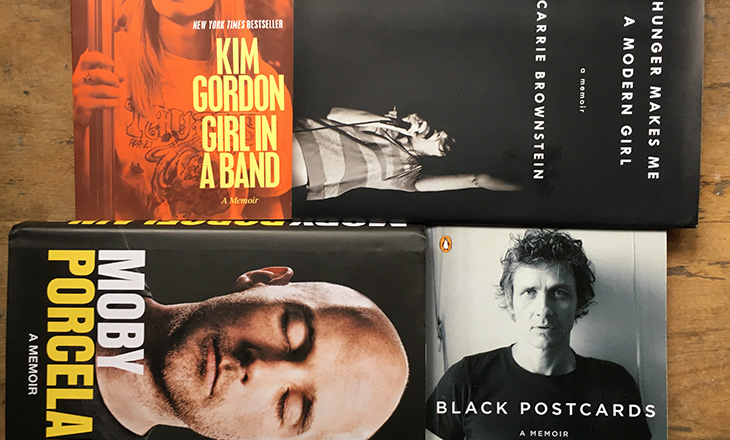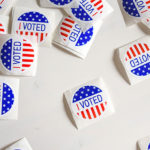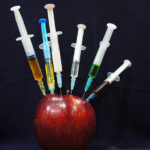If I’m honest with myself, I have to admit that I don’t really like the work of celebrated artists that often. I’d say that I really do like Picasso, Miles Davis, Mozart, maybe Rodin. I like F. Scott Fitzgerald though I could take or leave Hemingway and Faulkner. It’s possible that I’m just a philistine but regardless of what I think of artists’ art, I always love reading about their lives. This was never more true than with the Beats. I was enamored of the Beats in college, particularly Jack Kerouac. The idea of going on the road seemed both romantic and badass, rugged, fearless, individualistic. Then I read On The Road.
It was okay.
I realized it wasn’t the book. It was Jack and Allen Ginsburg and William S. Burroughs. I really just wanted to be an artist in New York City in the fifties. I wanted to go to jazz clubs and hang out with other poor artists in cold water flats (whatever the fuck a cold water flat is). That was Life, capital L, with fuckups and adventure and drugs and all of it. That, to me, was amazing.
Years later I would come to find that Kerouac was a drunken mama’s boy who wrote the novel at his mom’s house in Queens. So it goes.
Ever since reading about DIY bands in Our Band Could Be Your Life, I’ve been fascinated by the stories of indie bands. I was fascinated by the life of just getting in a van and driving anywhere that will let you play, without asking for permission from anyone. There’s also a voyeuristic thrill because musicians are naturally cooler than I am. This is simply a fact. Is it biological? Are the “casual nonchalance” and “pick up a guitar” genes the same or something? Are the “never ending interior monologue” and “sit at a desk away from the sun” genes connected for writers as well? Who knows.
Truth be told, I’m actually quite the philistine with music as well. I never cared for Dylan (yeah, you heard me), thought Lou Reed was kind of a prick, and was indifferent to Bowie. I will, however, listen to stories about MacDougal Street in the sixties, Max’s Kansas City, and, like, outer space, I guess. I suppose I could read mainstream rock memoirs like Anthony Keidis’s Scar Tissue or Nikki Six’s The Heroin Diaries, or even Keith Richards’s Life but they hold no real interest for me. Heroin, models, millions of dollars. Got it.
Instead I read Black Postcards (Dean Wareham, Galaxie 500, Luna), Hunger Makes Me a Modern Girl (Carrie Brownstein, Sleater Kinney and Portlandia, which is not discussed), Girl in a Band (Kim Gordon, Sonic Youth), and Porcelain (Moby).
Of all those artists I actually like Moby the best, which is as anti-indie as you can get. I would have gotten my ass kicked viciously sneered at in the nineties for that opinion. In 1999, I thought Play was the best album I had ever heard. I was coming off of years of listening to alternative rock and jam band crap so ambient electronic music blew me away.
Regardless of all that, I enjoyed all the books and I noticed some common tropes in the indie rock memoir. Perhaps these exist in the hard rock, heroin, models, and millions memoirs too but I wouldn’t know.
Reveal a family scar from your past
They all talk about their childhoods and the first moment they loved music but come on, people, that’s not why we’re reading. We want some drama. Carrie Brownstein had some turmoil early in her life. Her mother split on her family and her father was a closeted gay man (this isn’t to say that having a gay father leaves a scar but his secrecy took a toll). Kim Gordon’s brother was schizophrenic. Moby’s father died of alcoholism when he was very young. He grew up poor with his single mother who is the most tragic figure in the book. Dean fails us in this department. He describes his evolving relationship with his addict older brother Anthony but that seems to be as traumatic as it gets for young Dean. Originally from New Zealand, he moved to Manhattan with his family in the 70’s, went to the Dalton School and then Harvard. Thankfully his ego ruins perfectly good stuff later in the book but you have to get to it.
Mention running into another famous person early in your career before either of you got famous
Of course Kim Gordon, as a member of literally the coolest band ever, Sonic Youth, is the queen of this. Most notable to me is that she dated Danny Elfman (Oingo Boingo!). She then proceeds throughout the book to name check people too many people to mention here. Moby ran into Viggo Mortensen on a film set. He dated a girl, broke up with her, and then went to see her at the Sin-é for a set by her new boyfriend Jeff Buckley. (She’s the one who should write a memoir.) Brownstein mentions being impressed by a then unknown Cat Power. She also went to high school with Jeremy Enigk from Sunny Day Real Estate. (Perhaps you haven’t heard of him or his band but that’s cooler. This is indie rock.) I love Dean Wareham’s the most, though. His first band Galaxie 500 lost in a Harvard battle of the bands to Dan Wilson who later went on to write “Closing Time” with his band Semisonic. I love you, late 90’s.
Discuss your process for writing your albums (this is the worst)
As much as I love reading about an artist’s life, listening to an artist talk about the inspiration for their art is chalkboard-scratches-in-purgatory level annoying. Wareham and Gordon were pretty meticulous in this regard. Oh, really, Kim? You were inspired by Karen Carpenter for that crappy song off of Goo? Amazing. And you’re right, Dean, that recording studio did lend and ethereal quality to the whatever. Brownstein also discsussed each particular albums flavor and its meaning for Sleater-Kinney as a band. I’m sure there are fans who ate that up. I, however, was not one of them. Moby is the only one that didn’t make me want to choke myself. To paraphrase each discussion of a song, “There was a beat that I liked that wasn’t working, so, I tried another beat. Then I sampled something and added it to the track. Then I liked it. The end.” He kept saying “and then I hit play” throughout the book, foreshadowing the unmentioned album Play that came at the end of this period in his life. I can’t decide if that’s clever or annoying.
Describe band tension
Wareham’s book was the most intriguing for me in this regard. His main claim to fame, even more so than being the front man of Luna, is being “the guy who broke up Galaxie 500.” He never denies that he thought he was the star of the band but I saw his side without hating him. Later he described playing all over Europe with Luna as taxing and tiring and I actually believed him. Brownstein opens her book saying “I was about to destroy Sleater-Kinney.” She later describes getting sick multiple times on grueling tours. Gordon beats them both, though, by getting divorced from the lead singer of her band who is cheating on her.
On the other end of the spectrum, Moby once spilled the records he was pushing on a skateboard to a club. Other than that he basically only had to catch flights to festivals in Europe. Sometimes it rained, that’s as bad as it got. I suppose his struggle with himself over his dependence on alcohol counts. Sort of.
Whenever possible mention how it used to be in New York
Growing up in Manhattan, Dean Wareham used to go to the Mudd Club and he saw The Clash in their legendary concert in 1977. When New York was cool, you could go to legendary record stores in the Village to discover new music. Moby used to live in an abandoned factory in Stamford with a hot plate and a communal bathroom. He would sneak onto the Metro North and hide in the bathroom to ride for free. Crack was everywhere and a friend of his got stabbed. Man, those were the days. Later, his loft apartment building had practice spaces for Iggy Pop and Sonic Youth. Kim Gordon lived in a loft across from the Puck Building in SOHO. She and Moby are tied for most annoying “New York is so over” moments in their books. Luckily they both moved to LA where everything is real.
Carrie Brownstein gets a pass by never living in New York.
Reading this books made me feel significantly less jealous of people in bands. I really just don’t like arguing in vans that much. I also gained some more appreciation for their music by reading their books. So, I’ll leave you with a selection from each.
“This Time Around” – Luna
“All Hands On The Bad One” – Sleater-Kinney
“Kool Thing” – Sonic Youth
“Honey” – Moby*
* No one ever called him Richard Hall in the book and he never explained when he got the nickname.




